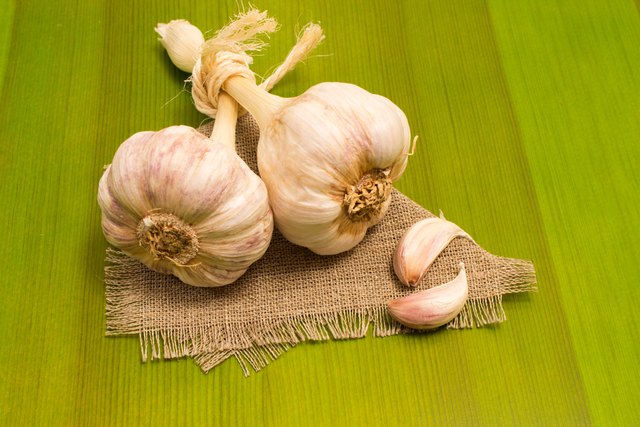Can Garlic Cure Gum Infection

Gum infections, also known as periodontal disease, are a common oral health issue that can cause significant discomfort and lead to more severe complications if left untreated. While there are various treatments available, including antibiotics and surgical procedures, some people are exploring alternative remedies, such as garlic, to help manage gum infections. But can garlic really cure gum infections?
To understand the potential benefits of garlic in treating gum infections, it’s essential to examine the properties of garlic and its effects on oral health. Garlic contains a compound called allicin, which has been shown to have antibacterial, antiviral, and antifungal properties. These properties make garlic a potential candidate for reducing the bacterial load in the mouth and preventing the progression of gum disease.
Several studies have investigated the effects of garlic on oral health, including its ability to reduce bacteria and inflammation in the mouth. A study published in the Journal of Periodontology found that garlic extract reduced the growth of certain bacteria associated with gum disease. Another study published in the Journal of Medicinal Food found that garlic oil exhibited antimicrobial activity against oral pathogens.
In addition to its antimicrobial properties, garlic may also have anti-inflammatory effects, which could help reduce the inflammation and swelling associated with gum infections. A study published in the Journal of Inflammation found that garlic extract reduced inflammation in the gums and improved symptoms of gum disease.
While the existing research suggests that garlic may have some benefits in reducing bacteria and inflammation in the mouth, it’s essential to note that garlic is not a replacement for conventional treatment. Gum infections require professional dental care, and relying solely on garlic or other alternative remedies can lead to more severe complications, such as tooth loss and increased risk of heart disease.
That being said, garlic can be used as a complementary therapy to support conventional treatment. Here are some ways to use garlic to help manage gum infections:
- Garlic oil mouthwash: Mix a few drops of garlic oil with water and swish it around the mouth for 30 seconds to 1 minute before spitting it out. Repeat this process 2-3 times a day.
- Garlic paste: Mix crushed garlic with a small amount of water to create a paste. Apply the paste to the affected area using a cotton swab.
- Garlic supplements: Take garlic supplements orally, but consult with a healthcare professional before doing so, as the efficacy and safety of garlic supplements for gum infections are not well established.
It’s crucial to remember that while garlic may have some benefits, it’s not a miracle cure for gum infections. Maintaining good oral hygiene, including regular brushing, flossing, and dental check-ups, is essential for preventing and managing gum disease.
In conclusion, while garlic may have some potential benefits in reducing bacteria and inflammation in the mouth, it’s not a replacement for conventional treatment. If you’re experiencing symptoms of a gum infection, it’s essential to consult with a dental professional for proper diagnosis and treatment.
Can garlic cure gum infections on its own?
+No, garlic is not a replacement for conventional treatment. While it may have some benefits, it's essential to consult with a dental professional for proper diagnosis and treatment.
How do I use garlic to support conventional treatment?
+You can use garlic oil as a mouthwash, apply garlic paste to the affected area, or take garlic supplements orally. However, consult with a healthcare professional before using garlic supplements.
What are the potential risks of using garlic to treat gum infections?
+Relying solely on garlic or other alternative remedies can lead to more severe complications, such as tooth loss and increased risk of heart disease. It's essential to consult with a dental professional for proper diagnosis and treatment.
In addition to using garlic as a complementary therapy, there are several other natural remedies that may help support oral health and reduce the risk of gum infections. These include:
- Oil pulling: Swishing oil, such as coconut or sesame oil, around the mouth to reduce bacteria and inflammation.
- Salt water rinse: Rinsing the mouth with salt water to reduce inflammation and kill bacteria.
- Aloe vera: Applying aloe vera gel to the affected area to reduce inflammation and promote healing.
- Vitamin C: Taking vitamin C supplements or eating foods rich in vitamin C, such as citrus fruits and leafy greens, to boost the immune system and reduce inflammation.
While these natural remedies may have some benefits, it’s essential to remember that they are not a replacement for conventional treatment. If you’re experiencing symptoms of a gum infection, it’s crucial to consult with a dental professional for proper diagnosis and treatment.
In terms of prevention, maintaining good oral hygiene is essential for reducing the risk of gum infections. This includes:
- Brushing: Brushing teeth at least twice a day with a fluoride toothpaste.
- Flossing: Flossing once a day to remove food particles and plaque from between the teeth.
- Dental check-ups: Regular dental check-ups to monitor oral health and catch any problems early.
- Healthy diet: Eating a healthy, balanced diet that is low in sugar and acidic foods and drinks.
By combining good oral hygiene practices with natural remedies, such as garlic, and conventional treatment, you can help reduce the risk of gum infections and maintain good oral health.
According to the American Dental Association, gum disease is a leading cause of tooth loss in adults. However, with proper treatment and prevention, it's possible to manage gum disease and maintain good oral health. If you're experiencing symptoms of a gum infection, don't hesitate to consult with a dental professional for proper diagnosis and treatment.
In conclusion, while garlic may have some potential benefits in reducing bacteria and inflammation in the mouth, it’s not a replacement for conventional treatment. By combining good oral hygiene practices with natural remedies, such as garlic, and conventional treatment, you can help reduce the risk of gum infections and maintain good oral health. Remember to always consult with a dental professional for proper diagnosis and treatment.

